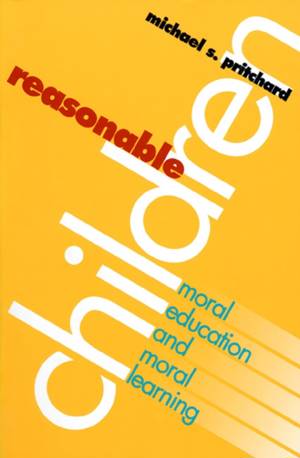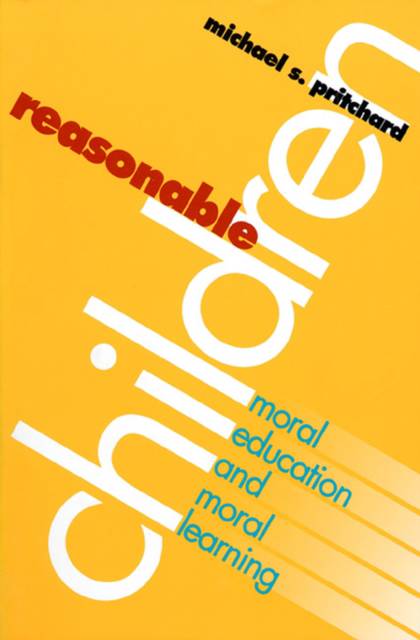
- Afhalen na 1 uur in een winkel met voorraad
- Gratis thuislevering in België vanaf € 30
- Ruim aanbod met 7 miljoen producten
- Afhalen na 1 uur in een winkel met voorraad
- Gratis thuislevering in België vanaf € 30
- Ruim aanbod met 7 miljoen producten
Zoeken
Omschrijving
The public outcry for a return to moral education in our schools has raised more dust than it's dispelled. Building upon his provocative ideas in On Becoming Responsible, Michael Pritchard clears the air with a sensible plan for promoting our children's moral education through the teaching of reasonableness. Pritchard contends that children have a definite but frequently untapped capacity for reasonableness and that schools in a democratic society must make the nurturing of that capacity one of their primary aims, as fundamental to learning as the development of reading, writing, and math skills. Reasonableness itself, he shows, can be best cultivated through the practice of philosophical inquiry within a classroom community. In such an environment, children learn to work together, to listen to one another, to build on one another's ideas, to probe assumptions and different perspectives, and ultimately to think for themselves. Advocating approaches to moral education that avoid mindless indoctrination and timid relativism, Pritchard neither preaches nor hides behind abstractions. He makes liberal use of actual classroom dialogues to illustrate children's remarkable capacity to engage in reasonable conversation about moral concepts involving fairness, cheating, loyalty, truthtelling, lying, making and keeping promises, obedience, character, and responsibility. He also links such discussions to fundamental concerns over law and moral authority, the roles of teachers and parents, and the relationship between church and state. Pritchard draws broadly and deeply from the fields of philosophy and psychology, as well as from his own extensive personal experience working with children and teachers. The result is a rich and insightful work that provides real hope for the future of our children and their moral education.
Specificaties
Betrokkenen
- Auteur(s):
- Uitgeverij:
Inhoud
- Aantal bladzijden:
- 216
- Taal:
- Engels
- Reeks:
Eigenschappen
- Productcode (EAN):
- 9780700607976
- Verschijningsdatum:
- 29/10/1996
- Uitvoering:
- Paperback
- Formaat:
- Trade paperback (VS)
- Afmetingen:
- 157 mm x 228 mm
- Gewicht:
- 326 g

Alleen bij Standaard Boekhandel
+ 61 punten op je klantenkaart van Standaard Boekhandel
Beoordelingen
We publiceren alleen reviews die voldoen aan de voorwaarden voor reviews. Bekijk onze voorwaarden voor reviews.











